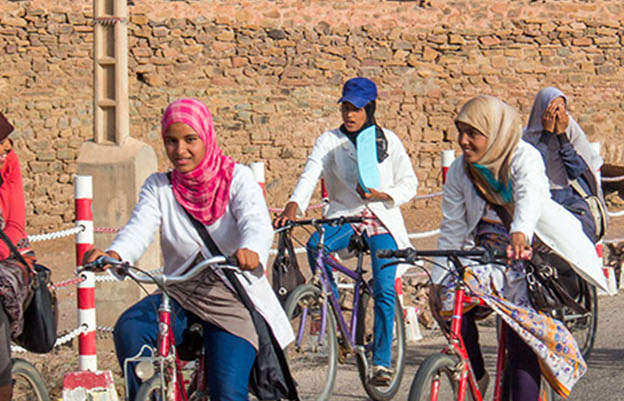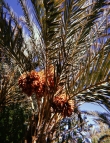It is 10 pm on a Sunday night as the two white minibuses open their doors and 30 rather tired and confused-looking students disembark. After more than 12 hours on the road we finally had reached the village of Ouled Merzoug (good luck finding it on Google Maps) close to the city of Skoura, belonging to the southern region of Drâa-Tafilalet. As we exit the bus and step onto the sandy ground, we are warmly welcomed by children, women and men of the village who seemed to have been waiting for our arrival.

We soon learn that they will be our hosts for the next few days and so after we retrieve our baggage, our new host-mothers and siblings guide us through the sparsely lighted village to our new homes. In my case, my host family included mother Khadija, her husband, son Hamid and daughter-in-law Soukaina. After entering the house, we were immediately greeted with a rich dinner consisting of various salads, a big tagine and fresh fruit as dessert.
“As we learned quickly this evening, restraint at dinner was not an acceptable option and so the word “kuli” (imperative of eat) would also accompany us the following evenings”.
Furthermore, verbal communication revealed itself as being rather difficult since Moroccan Arabic was the only common language but which neither me nor my roommate spoke fluently. Yet, we did not fail to understand that our host mother repeatedly referred to us as her daughters and stressed that we should feel at home in her house just as much as we would at our own family.

The life at my host family was formative especially in regard to what it taught me about the difference between life in Rabat and the rural area. The houses I visited in Oued Merzoug were very simple in terms of furniture and sanitary equipment. It became clear that provision of public services such as reliant water supply is not a given in the rural region. Moreover, from what I could observe in those few days, the division of gender roles was still more traditional than I was used from Rabat. In Oued Merzoug women were mostly staying at home, working either in the household or for a local carpet manufacturing cooperation and rarely interacting with men outside their own family. However, as with any social phenomena there are exceptions to the rule. For example, the female pre-school teacher I met during the visit and the female owner of the Kasbah, the village’s only guest house. In a nutshell, the trip to Oued Merzoug is not enough for me to make generalizing claims about Moroccan rural life, especially since there is a big diversity within Morocco’s rural areas amongst other things in terms of their climate environment. Yet, it seems that compared to Rabat, life in Oued Merzoug is simpler in material terms, more communal and conservative in social terms as well as agriculture based in economic terms.




